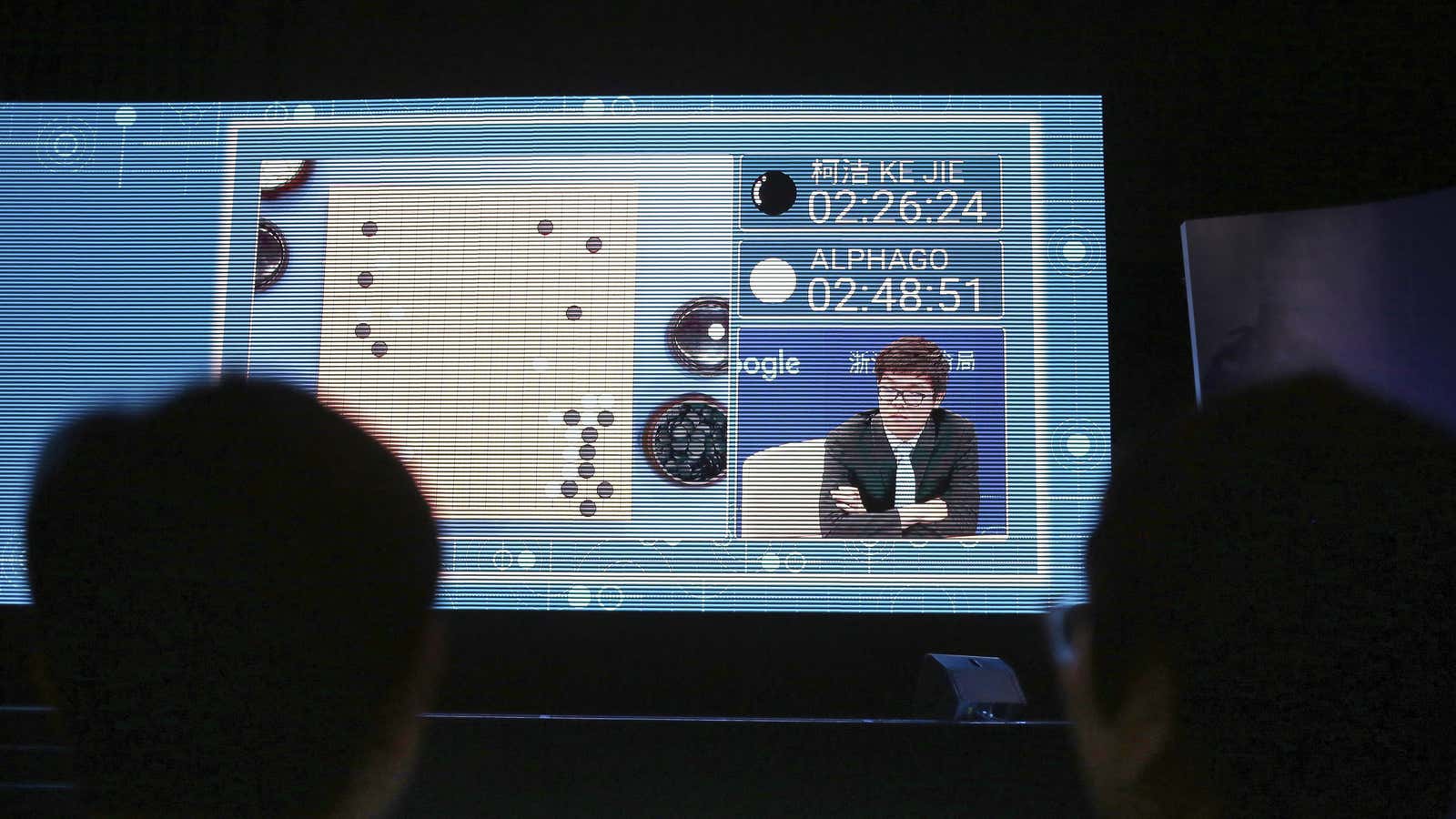Google’s major consumer services, including its search engine and maps have long been gone from China, but its artificial-intelligence branch has recently made headway in the country, in the form of an epic tournament between man and machine in the board game Go.
From today (May 23) to Saturday (May 27), Google’s DeepMind machine-learning team is co-hosting a summit about Go and AI with the local sports authority in China’s eastern coastal town of Wuzhen. The centerpiece of the event is a one-on-one match between DeepMind’s AI AlphaGo and China’s Ke Jie. The 19-year-old reigning top-ranked player is fighting against complete machine dominance over what is possibly the world’s most complex board game. He very narrowly lost the first game Tuesday, with two more games to follow.
To Chinese Go fans, what may be more depressing than the fact that machines are better than humans at a game that they weren’t expected to conquer for years yet, is the fact that they can’t watch the tournament. The tournament has been banned from live-streaming in China, amid the long-standing rift between the Chinese government and Google.
Three Chinese journalists told Quartz that they have received oral directives from the authorities that their organizations are not allowed to live broadcast the May 23-27 event. One of them said that his publication has been asked not to even mention Google’s name in reporting on the event. Another said that they are allowed to mention Google, but are not allowed to write about Google’s products in related news reports.
A video editor with a Shanghai-based live-streaming platform said that her company had already sent staff to the venue in Wuzhen, but had to call them back after receiving the ban on May 19.
Meanwhile, instructions leaked online say that the match between AlphaGo and Ke “may not be broadcast live in any form and without exception, including text commentary, photography, video streams, self-media accounts and so on,” according the China Digital Times website, which tracks censorship information. The source of the instruction could not be identified.
Google didn’t respond to a request for comment from Quartz. The company is streaming the whole event via YouTube, which is also blocked in China. China’s State Council Information Office, which oversees communications for the government, didn’t reply to a query from Quartz sent via Twitter.
As the first game between AlphaGo and Ke was underway, Chinese Go fans struggled in search of a live-stream of the event. “I don’t quite understand… why a game held in China cannot be broadcast in China,” one blogger wrote (link in Chinese) on China’s Twitter-like microblogging site Weibo.
Several streaming sites, including bilibili.com, offered their own boards to replicate the two players’ moves in real time, but with no actual shots from the event.
In 2010 Google shut down its search-engine services in China, after refusing to cooperate with censors. Beijing has said that it welcomes Google back to the country as long as it “respects China’s laws.” There have been signs that the company is ramping up its China presence—for instance it recently reintroduced its translator apps to the country.
The live-streaming ban of this highly-awaited AI event is a sign the road in China is going to be as bumpy as ever for the “AI-first“ company.
